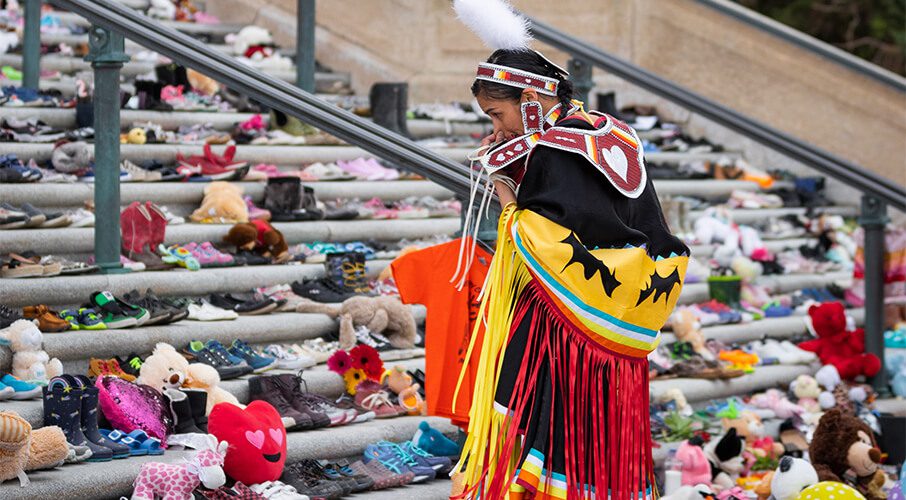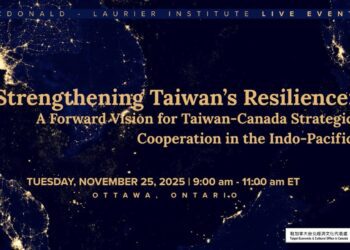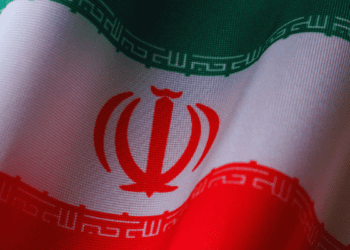 Reconciliation must be embraced, not resisted. Though the task is formidable, JP Gladu and Ken Coates write that this must be Canada’s highest priority if social and economic justice are to be achieved. They outline 10 priorities to help guide this effort.
Reconciliation must be embraced, not resisted. Though the task is formidable, JP Gladu and Ken Coates write that this must be Canada’s highest priority if social and economic justice are to be achieved. They outline 10 priorities to help guide this effort.
By JP Gladu and Ken Coates, December 1, 2021
Canada’s pursuit of Indigenous reconciliation is missing a key element: a clearly understood end goal. Even the recent throne speech described reconciliation as a “process,” reinforcing the open-ended nature of this effort to change the relationships between Indigenous peoples and other Canadians.
Reconciliation defies easy characterization; it cannot be reduced to a strategy. The list of complex issues is daunting: recognizing treaty rights, re-establishing political autonomy, improving infrastructure, revitalizing Indigenous language and culture, overcoming entrenched social pathologies, and more.
So, a path to reconciliation requires guideposts. Here are 10 to consider:
Language revitalization — Efforts to regenerate Indigenous language have been anemic; the linguistic crisis is desperate. A full commitment must be launched, if only to show goodwill and recognition of Indigenous priorities.
Co-production of policy — Indigenous peoples should not have policy made for them or applied to them. They must be coproducers.
Reduce litigation — Millions of dollars are spent each year on legal proceedings, with governments usually outspending Indigenous claimants. Change is needed to correct the confrontational culture that defines Indigenous affairs.
Infrastructure and service standards — Conditions in many Indigenous communities are disgraceful, boil-water advisories being a visible example. Indigenous communities deserve infrastructure standards shared by all Canadians.
Equal opportunities — Indigenous people have a right to comparable educational, training and career opportunities. The gap is unacceptable.
Land claims — Much of Canada is not covered by treaties. These gaps limit opportunities and add tension to relationships. New accords will not resemble 19th- or 20th-century treaties, but respecting Indigenous rights of access and use on traditional lands is imperative.
Enable investment — Indigenous peoples want to engage in major investments but often lack money to back their interests. Governments and private funders must ensure Indigenous peoples are resourced to participate as equity holders in the Canadian economy.
Procurement targets — The federal government has a five per cent target for procurement from Indigenous businesses. Major corporations are even further along. Governments must set — and sustain — procurement thresholds.
Justice reform — The over-incarceration and mistreatment of Indigenous people is well-known. Major revisions, drawing on Indigenous systems of punishment and rehabilitation, are urgently required.
Land management — Canada has taken steps toward co-managing natural resources. Initiatives like the Indigenous Guardians program demonstrate potential for collaboration and improvement.
Canada must remedy the bad policies and paternalism of the past. Substantial work is required on education, self-government, health care delivery, Indigenous intellectual property rights, housing strategies, and more.
There is no easy way to undo the history of multi-generational trauma, but we must recognize key realities. Indigenous peoples are still here, despite multi-generational efforts to take their lands or assimilate them. Resilience remains a key element in Indigenous life. Indigenous achievements in business, governance, cultural expression, community renewal, and the reassertion of Indigenous women in national affairs have succeeded despite daunting barriers.
Reconciliation must be embraced, not resisted. It addresses the challenges of the past, but also sets a course that is good for all Canadians. Empowered Indigenous peoples will be strengthened, and Canada will benefit from the improvement, renewal and revitalization of Indigenous lives. The task is formidable; it will be neither inexpensive nor easy. But to realize social and economic justice, this must be Canada’s highest priority.
JP Gladu is a Senior Fellow at the Macdonald-Laurier Institute, and an Indigenous business leader. Ken Coates is a Distinguished Fellow at the Macdonald-Laurier Institute, and a University of Saskatchewan professor.





